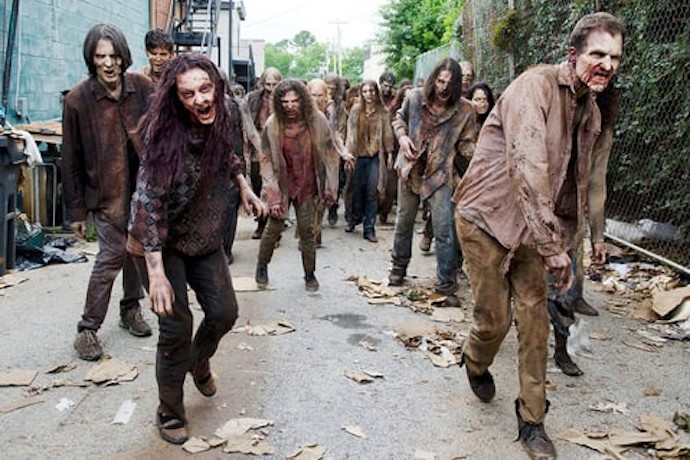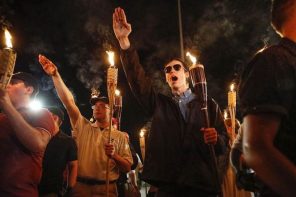Between last week’s Supreme Court hearing on the challenge to the contraceptive mandate accommodation by the Little Sisters of the Poor and other religious non-profits, and Georgia’s attempt to pass an expansive religious liberty bill, it’s clear that we’re at a pivotal moment in the contentious debate over exactly what constitutes “religious liberty.”
We’ve moved beyond any nuanced conversation about the parameters of the right of faith-based actors to claim exemptions from broadly applicable laws and into wide reaching claims that religious liberty is essentially anything anyone who has a religious objection says it is.
Last week’s oral arguments in Zubik v. Burwell saw even a relatively moderate justice like Anthony Kennedy taking seriously the plaintiffs’ argument that requiring them to notify the government of their intent to opt out of the contraceptive mandate was a violation of their religious liberty because, as they see it, the notification “triggers” the coverage.
Kennedy picked up on Little Sisters’ attorney Paul Clement’s suggestion, which was echoed by Chief Justice John Roberts, that in effect the government was “hijacking” the health plans of the religious objectors, even though in reality the accommodation would, by definition, kick responsibility for providing contraceptives back to the insurer. Clement compared requiring the Little Sisters to notify the government of their intention to opt-out of the mandate to taking over a room in one of their nursing homes and running a Title X birth control clinic out of it.
Kennedy appeared to be swayed by the argument that the accommodation was not the least burdensome means of achieving the government’s objective of providing women with contraceptive coverage, agreeing with Justice Alito that women could simply get birth control through a special, stand-alone “uber” plan which does not exist and would be incredibly complicated and burdensome to create, administer and use.
The upshot, as Garrett Eps noted in The Atlantic, is that when it comes to questions of religious freedom that involve women and sex, “any public policy that offends a ‘traditional’ American religious sensibility—mostly meaning certain strains of conservative Christianity—is inherently suspect.” As Alito noted:
It’s not just Catholics and Baptists and evangelicals, but Orthodox Jews, Muslim groups, the Church of Jesus Christ of the Latter Day Saints, an Indian tribe, the Church of Lukumi Babalu Aye—have said that this presents an unprecedented threat to religious liberty in this country.
The key words here are that the plaintiffs “have said” the accommodation is a threat to their religious liberty, seemingly removing the government and the courts from having any responsibility to decide what is and what isn’t a reasonable burden on religious liberty, even though seven of the eight appellate courts that heard challenges to the mandate dismissed this idea as outlandish.
As Judge Richard Posner of the seventh circuit said in rejecting Notre Dame’s challenge, “Although Notre Dame is the final arbiter of its religious beliefs, it is for the courts to determine whether the law actually forces Notre Dame to act in a way that would violate those beliefs.”
In the end, even if Kennedy is ultimately swayed toward this incredibly expansive definition of religious liberty, the death of Justice Antonin Scalia ensures that in the event of a tie, only the plaintiffs in the eight circuit, the lone appellate court that found objections to the accommodation reasonable, would get their wish to be entirely exempt from the contraceptive mandate.
But states are also moving to codify these expansive definitions of religious liberty, with Georgia passing a bill that would allow any group to refuse to provide “social, educational or charitable services that violate” their religious beliefs or to refuse to hire any individual whose beliefs conflicted with those of the organization.
While the bill was largely seen as an effort to allow groups to refuse to hire LGBT individuals, it would also in theory allow Catholic schools, hospitals or other employers to refuse to hire people who supported abortion rights or just about anything that contradicted church teaching.
The bill, which Georgia Gov. Nathan Deal said Monday he plans to veto, would have basically allowed employers to self-define and execute religious liberty exemptions with no government mediation to balance conflicting rights. And Deal’s expected veto of the measure probably has less to do with concerns about overreach than a threatened boycott of the state by everyone from the NFL, to Coca-Cola, to entertainment companies like Disney, Marvel, and AMC that have helped make Georgia the “Hollywood of the South.”
If that’s the case, then for now it appears that “The Walking Dead” and other TV shows shot in Georgia have beaten back one of the most blatant religious liberty overreaches. But the proponents of the bill promise to resurrect it next year or in a special session, which means like the zombies of “The Walking Dead,” this bill—and the religious liberty meme which accompanies it—could be hard to kill.





